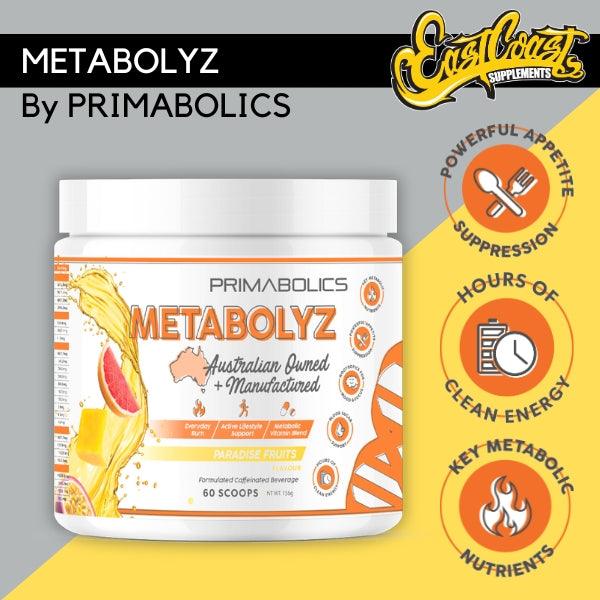Exploring the Advantages of Tongkat Ali
Tongkat Ali, scientifically known as Eurycoma Longifolia, has garnered attention for its potential in enhancing testosterone levels and supporting sexual health^(3,1). As we age, our testosterone levels naturally decline, starting from our mid-twenties to early thirties, with a gradual decrease of 1-2% annually. This decline might manifest in various ways, such as reduced energy, muscle loss, and changes in libido. If you've noticed these changes, Tongkat Ali might offer some assistance.
Understanding Tongkat Ali
Originating from a shrub native to Malaysia, Tongkat Ali has intrigued researchers for its potential benefits in supporting a healthy libido, particularly in men, by promoting testosterone production^(2). Interestingly, its advantages might extend to women as well.
Four Key Advantages of Tongkat Ali
Muscle Health for Both Genders
Leading a balanced lifestyle with adequate rest is crucial for muscle health. Overexertion can elevate cortisol levels, potentially reducing testosterone. Tongkat Ali may help counteract this by promoting muscle-building hormones like DHEA and Androstenedione and inhibiting muscle-degrading ones like cortisol^(5). By preventing the conversion of testosterone to oestrogen, it can also support muscle strength in both men and women^(4).
Natural Libido Enhancer
Historically, Tongkat Ali has been utilised in Asia to boost sexual performance. A study involving 139 participants found that those consuming Tongkat Ali had a more significant efficacy of testosterone^(7). The exact mechanism remains under research, but certain compounds in Tongkat Ali might play a pivotal role.
Anti-Inflammatory Properties
Tongkat Ali has shown potential in reducing inflammation. This might be attributed to its quassinoids, which can inhibit specific genes like Nuclear Factor (NF-kB) known for pro-inflammatory effects^(9,10,8).
Support for Male Reproductive Health
For those grappling with oestrogen dominance, Tongkat Ali might offer support by enhancing testicular function. Since testosterone is essential for male fertility, Tongkat Ali's ability to inhibit aromatase, thereby reducing oestrogen production, can be beneficial^(6).
In Summary
Tongkat Ali's potential benefits extend to both men and women. Its natural properties, backed by studies, make it a promising supplement for those looking to support their health. If you're curious to delve deeper, tune into episode 364 of the ATP Project podcast or watch the video version on YouTube.
References
Leisegang K, Finelli R, Sikka SC, Panner Selvam MK. Eurycoma longifolia (Jack) Improves Serum Total Testosterone in Men: A Systematic Review and Meta-Analysis of Clinical Trials. Medicina (Kaunas). 2022 Aug 4;58(8):1047.
Thu HE, Mohamed IN, Hussain Z, Jayusman PA, Shuid AN. Eurycoma Longifolia as a potential adaptogen of male sexual health: a systematic review on clinical studies. Chin J Nat Med. 2017 Jan;15(1):71-80.
Testosterone comes in three different forms, and that is free bound testosterone which is the most bioavailable, Sex Hormone Binding Globulin which transports testosterone around the body, and Albumin-bound testosterone which helps stabilise the testosterone within the body but is not an active form.
Low BS, Choi SB, Abdul Wahab H, Das PK, Chan KL. Eurycomanone, the major quassinoid in Eurycoma longifolia root extract, increases spermatogenesis by inhibiting the activity of phosphodiesterase and aromatase in steroidogenesis. J Ethnopharmacol. 2013 Aug 26;149(1):201-7.
Talbott SM, Talbott JA, George A, Pugh M. Effect of Tongkat Ali on stress hormones and psychological mood state in moderately stressed subjects. J Int Soc Sports Nutr. 2013 May 26;10(1):28.
Kotirum S, Ismail SB, Chaiyakunapruk N. Efficacy of Tongkat Ali (Eurycoma longifolia) on erectile function improvement: systematic review and meta-analysis of randomised controlled trials. Complement Ther Med. 2015 Oct;23(5):693-8.
Hajjouli S, Chateauvieux S, Teiten MH, Orlikova B, Schumacher M, Dicato M, Choo CY, Diederich M. Eurycomanone and eurycomanol from Eurycoma longifolia Jack as regulators of signalling pathways involved in proliferation, cell death and inflammation. Molecules. 2014 Sep 16;19(9):14649-66.
Tran TV, Malainer C, Schwaiger S, Atanasov AG, Heiss EH, Dirsch VM, Stuppner H. NF-κB inhibitors from Eurycoma longifolia. J Nat Prod. 2014 Mar 28;77(3):483-8.
Lawrence, T. (2009). The Nuclear Factor NF-κB Pathway in Inflammation. Cold Spring Harbor Perspectives in Biology.
Thu HE, Mohamed IN, Hussain Z, Jayusman PA, Shuid AN. Eurycoma Longifolia as a potential adaptogen of male sexual health: a systematic review on clinical studies. Chin J Nat Med. 2017 Jan;15(1):71-80.




